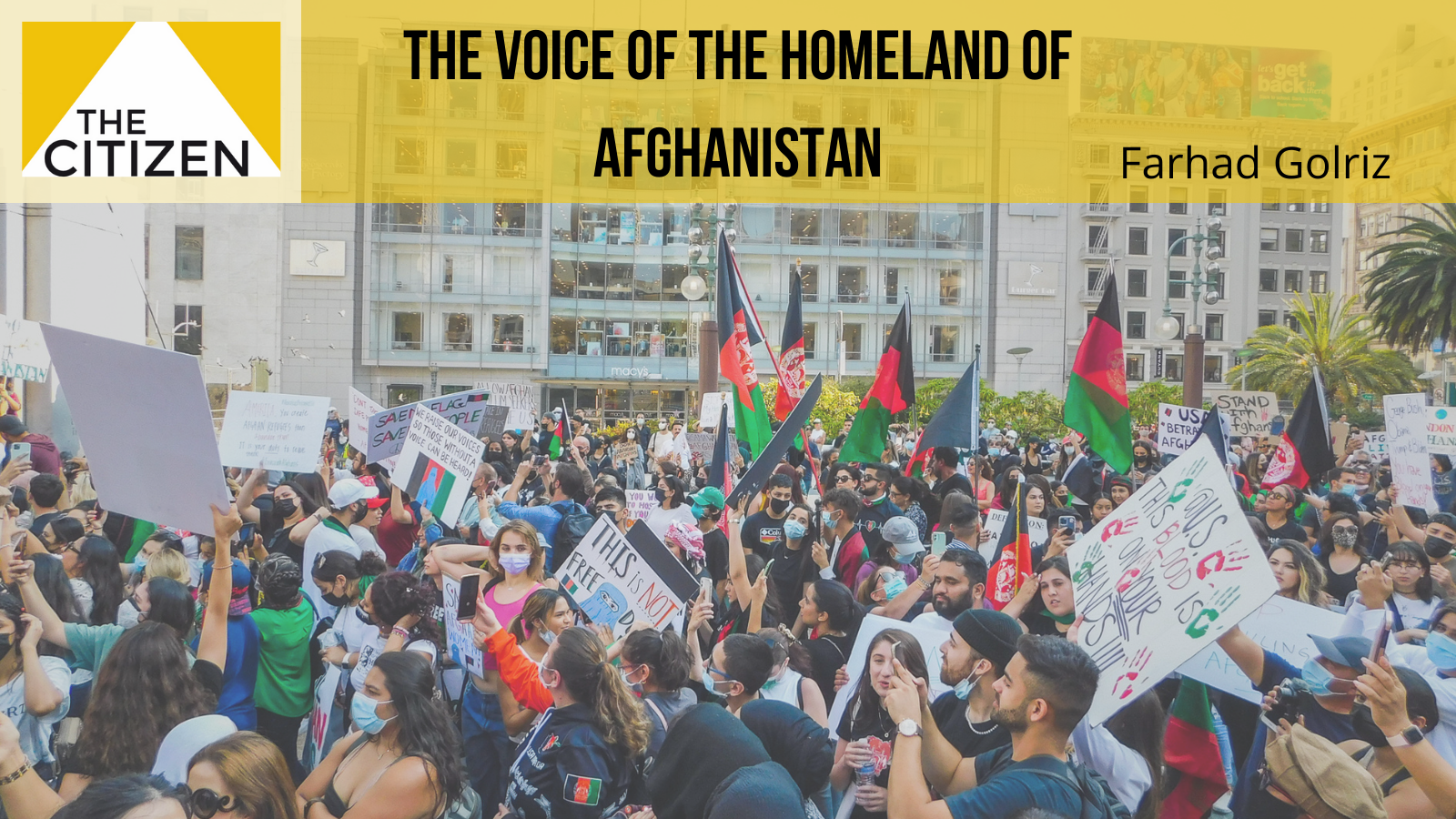
On April 14, President Biden announced that the US military would withdraw from Afghanistan by September 11 2021. On July 12, US military forces vacated the Bagram Airfield. A month later, over 65% of Afghanistan was reported to be under the control of the Taliban.
Two days later, the Taliban had taken control of both Herat & Kandahar. Shortly after on August 15 Taliban began to make entry into Kabul, as President Ashraf Ghani and several other government officials were forced to flee from the country.
On August 26 two blasts near Kabul airport left 169 Afghan civilians dead, 160 injured, 13 US military personnel dead and 15 other soldiers wounded.
The last US military flight from Afghanistan left Kabul airport on August 31, bringing an end to the nearly 20 year war, the longest in US history.
Reports from the US military have connected the Kabul airport bombings to terrorist group ISIS-K. Four days after the bombings, on August 30, the US military carried out an airstrike targeting a vehicle they called “an imminent ISIS-K threat”. The resulting explosions left 10 civilians dead, seven of whom were children. After an investigation completed by the US military on September 17 US Central Command General Frank McKenzie publicly claimed the air strike was a mistake and shared an apology for this strike.
Voice of a Homeland
“Afghanistan is sacred. It is where many empires thrived. Where poetry was revered. Where rubab played along the streets. Although my feet are not on Afghanistan’s soil, my heart and my thoughts are always with my watan,” said Laila Waziri, a first generation Afghan who is a volunteer for the United Afghan Association. She was born on the SF Peninsula and raised in the South Bay, and now works for policy advocacy and grassroots initiatives in the nonprofit sector.
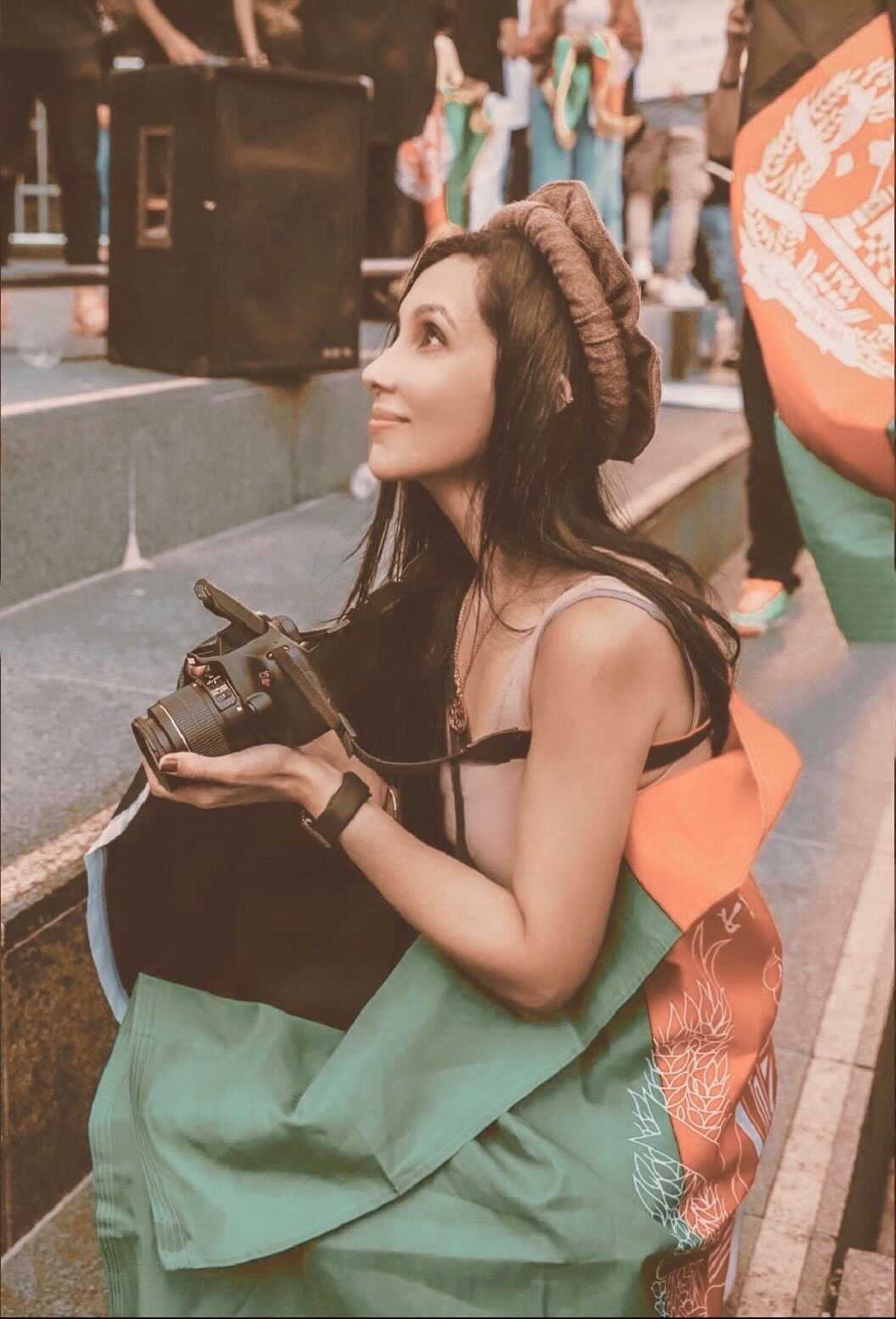
Waziri has family in North America and Afghanistan. Collectively they have endured both the pain of leaving and the anxiety of staying. She has personally struggled with her family’s current situation in Afghanistan. “Watching my parents re-live the war and the heartbreak of losing their land yet again to invaders and opportunists has been very difficult. I have family in Kabul and in the outskirts of the province. I am constantly worrying about them and fear for their safety. I often think about my young cousins the most. The opportunities they may have lost. Another war they will have to live through.”
Waziri believes surrounding communities across the world can better support the Afghan community. “Those outside of our community can try their best to steer clear from western narratives. They must educate themselves on the long and enriched history of Afghanistan. Many fail to realize that Afghanistan was where Rumi was born,” Waziri said. “We need to amplify Afghan voices and let Afghans lead while also upholding the outside communities standards.”
She then shared a message for the world to not accept the new government and to protect journalists in which she stated “I urge the international community to NOT legitimize the Taliban and to allow Afghans to democratically elect their own [government]. I also urge the international community to call out war crimes when they see them done. Investigative journalists are needed now more than ever for transparency and accountability.” She shared her perspective on the ongoing situation in Panjshir in which she said “Right now, I would like to see military support, humanitarian aid, and political support for Panjshir and the Northern Alliance Forces.”
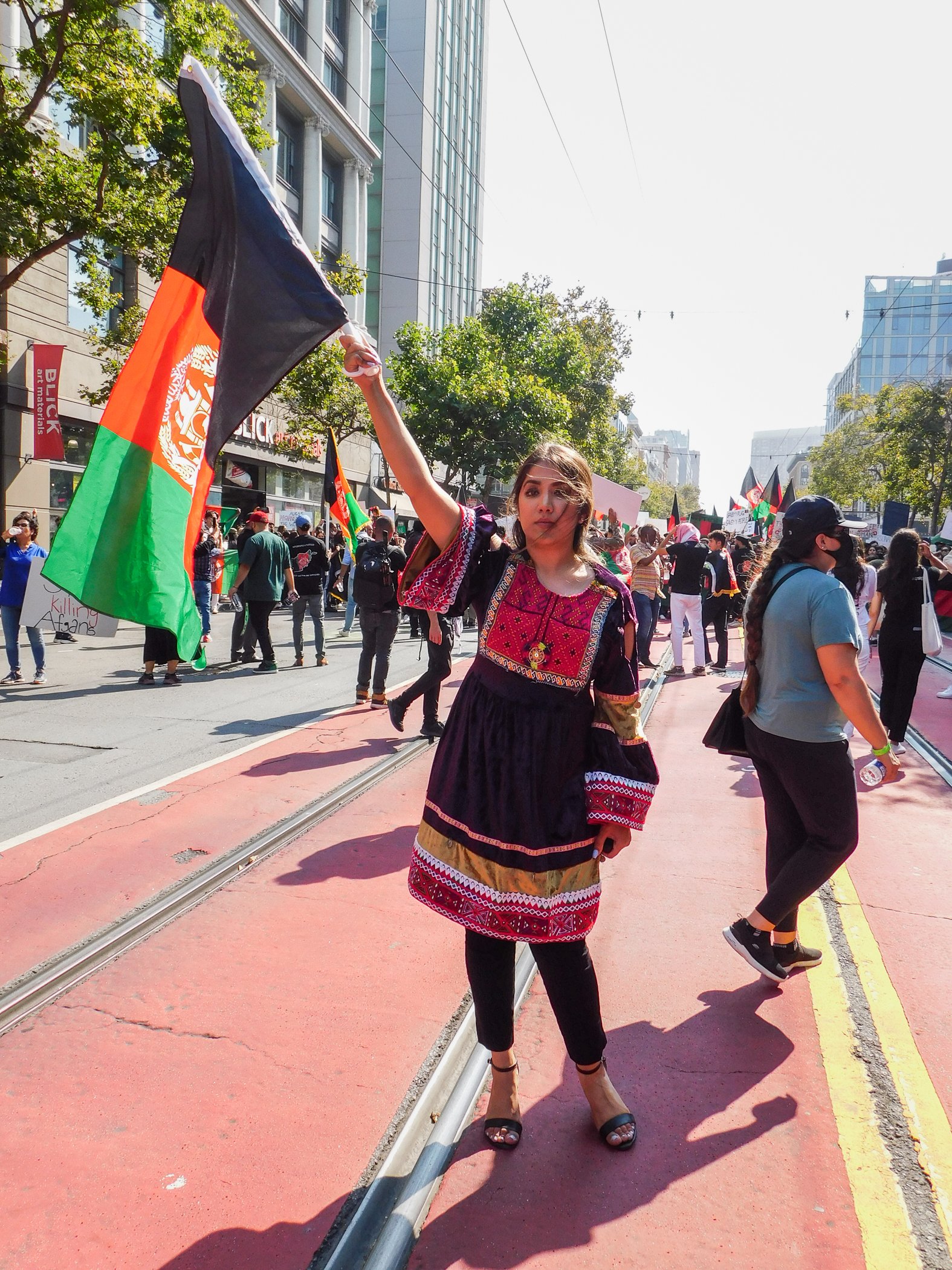
In the first days and weeks of the Taliban’s recapturing of Afghanistan, pockets of resistance across the country had vowed not to fold to the fundamentalists. The main resistance forces led by Ahmad Massoud have been located in Panjshir. While on September 6 the Taliban claimed to have quelled opposition in the region, the National Resistance Front has maintained that they have not given up hope and will continue to push for freedom from Taliban rule.
Groups both inside and outside Afghanistan have settled in for a long-term resistance against the Taliban government. Waziri expressed the importance of activists and aid groups focusing less on the differences between them but more on becoming united in their fight. “I see the resistance in Panjshir as a collective movement of Hazara, Tajik, Uzbek, Nuristani etc. It doesn’t matter what our differences are, how we pray, who we pray to, what our ethnic backgrounds are; Afghans throughout the streets are marching defiantly in resistance to the Taliban and their religious, fascist ideologies”
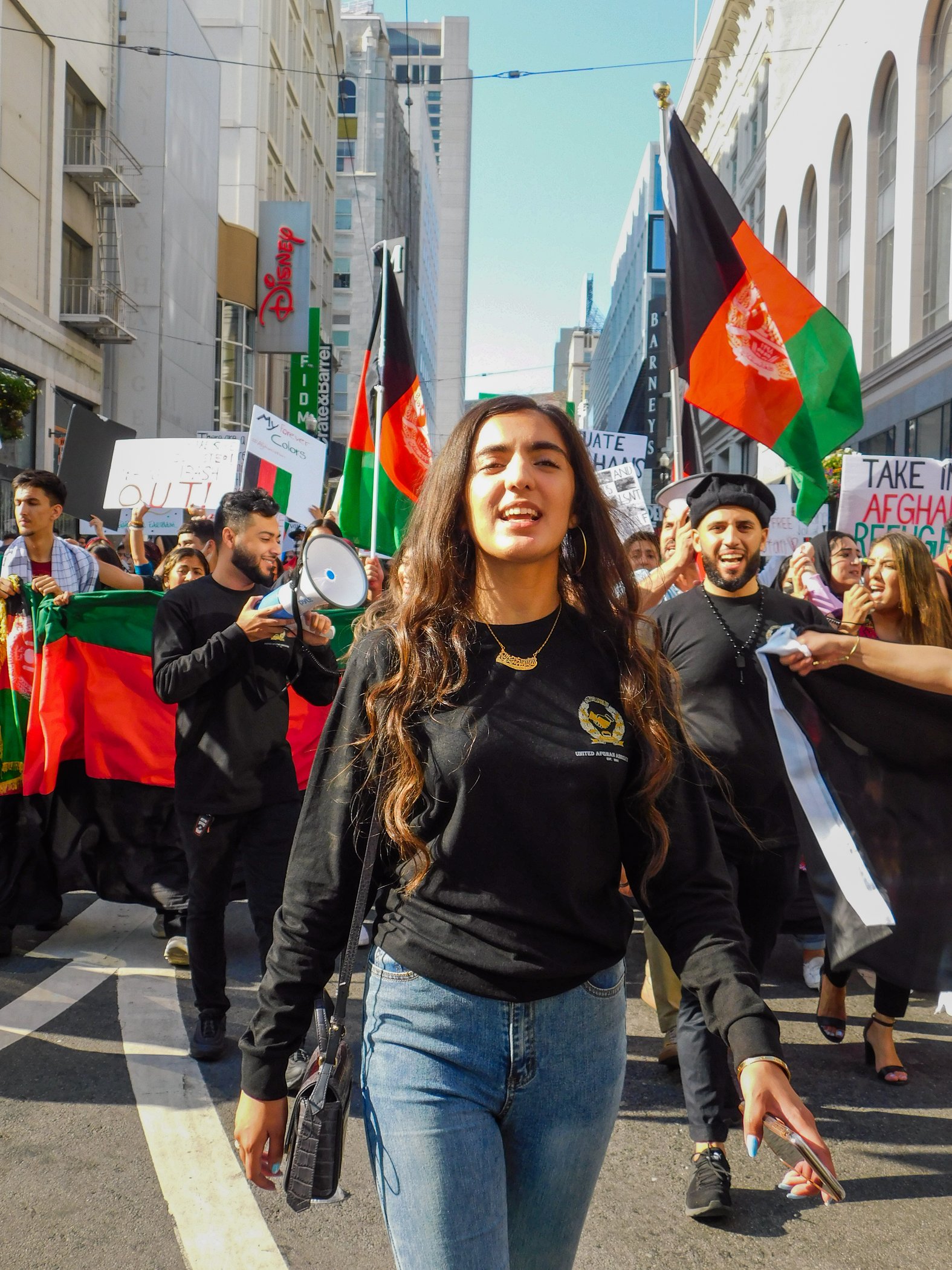
Waziri also expressed her frustration towards the US military withdrawal from Afghanistan. “Ensuring a smooth transition of power should never have a timestamp. Furthermore, the fact that President Biden and the administration along with the UK supplied the Taliban with names of those that were trying to get to the airport is horrific. These are people who are directly targeted by the Taliban.” In addition she believes that people were lied to regarding how long it would take the Taliban to regain control of Afghanistan in which she said “I believe that the withdrawal was a catastrophe. We were lied to. The American intelligence community [predicted] that the Taliban would take over Afghanistan in 90 days. They took over Afghanistan in 10.”
In recent days, Waziri says she has been thinking about her mother’s reaction to the fall of the country and the words she used:. “How would all of our Shaheed’s (our martyrs) feel knowing that all eyes are on Afghanistan and that Afghanistan’s name is on the tips of every person’s tongue? May their hands gather around Afghanistan and protect her.”
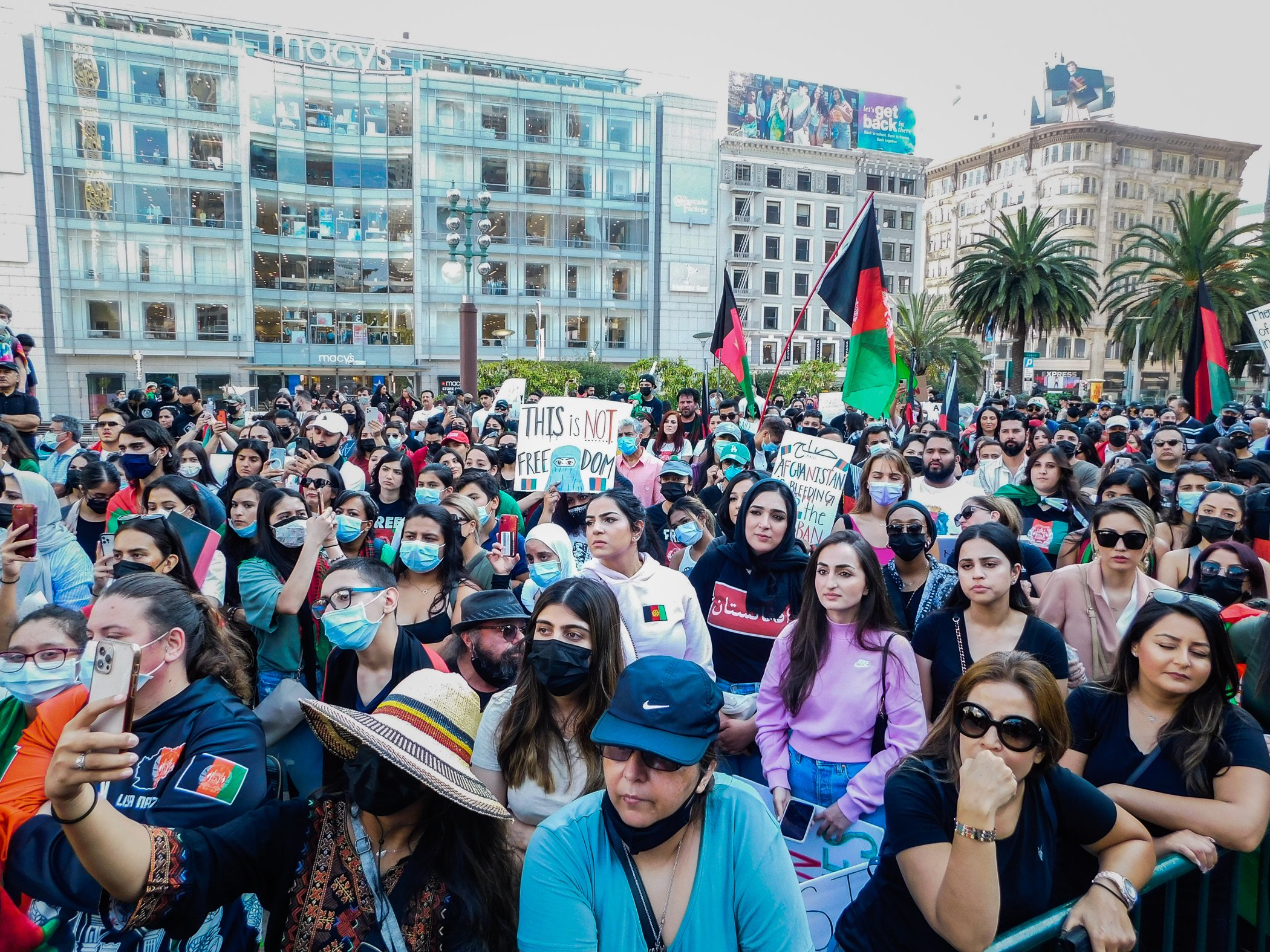
Fists Raised, Heads Held High
On August 28 the Afghan community held international protests in 12 countries and 17 different cities all around the world in solidarity with the people of Afghanistan. Over one thousand people attended the “Stop Killing Afghans” protest in San Francisco, which featured speeches from activists and first-hand accounts of those who had once fled the country. Demonstrators marched from UN Plaza to Union Square, where more speeches were made and banners were held high in outspoken defiance.
On September 13, the Peralta Community College District (PCCD) released a statement in solidarity with the current situation in Afghanistan and with the Afghan community. The statement reads: “To PCCD students and our Afghan Community who are experiencing hardship and trauma because of the violence and aggression towards women and religious minorities in Afghanistan, please know that we stand with you. We especially want to express our solidarity with all who have been impacted by this crisis, and our commitment to protecting students extends to you, your families, friends and other loved ones, for we all embrace Women’s rights, democracy, and other rights such as Freedom of Speech and Freedom of Religion that have been afforded to us by our Constitution.” The statement listed resources including free mental health services for students and the PCCD Employee Assistance Program for employees. The statement ended with “We are deeply saddened by these recent events, yet we support and stand with you.”
For Farhad Golriz’s full photo coverage of the August 28 “Save Afghanistan” protest, go here. For Farhad’s video coverage of that day and the subsequent September 12 rally in SF, go here.
To engage in the Afghan cause, see the links below:
Farhad United Afghan Donation & Resource Linktree
UCB Afghan Student Association Linktree
Afghan American Foundation Linktree
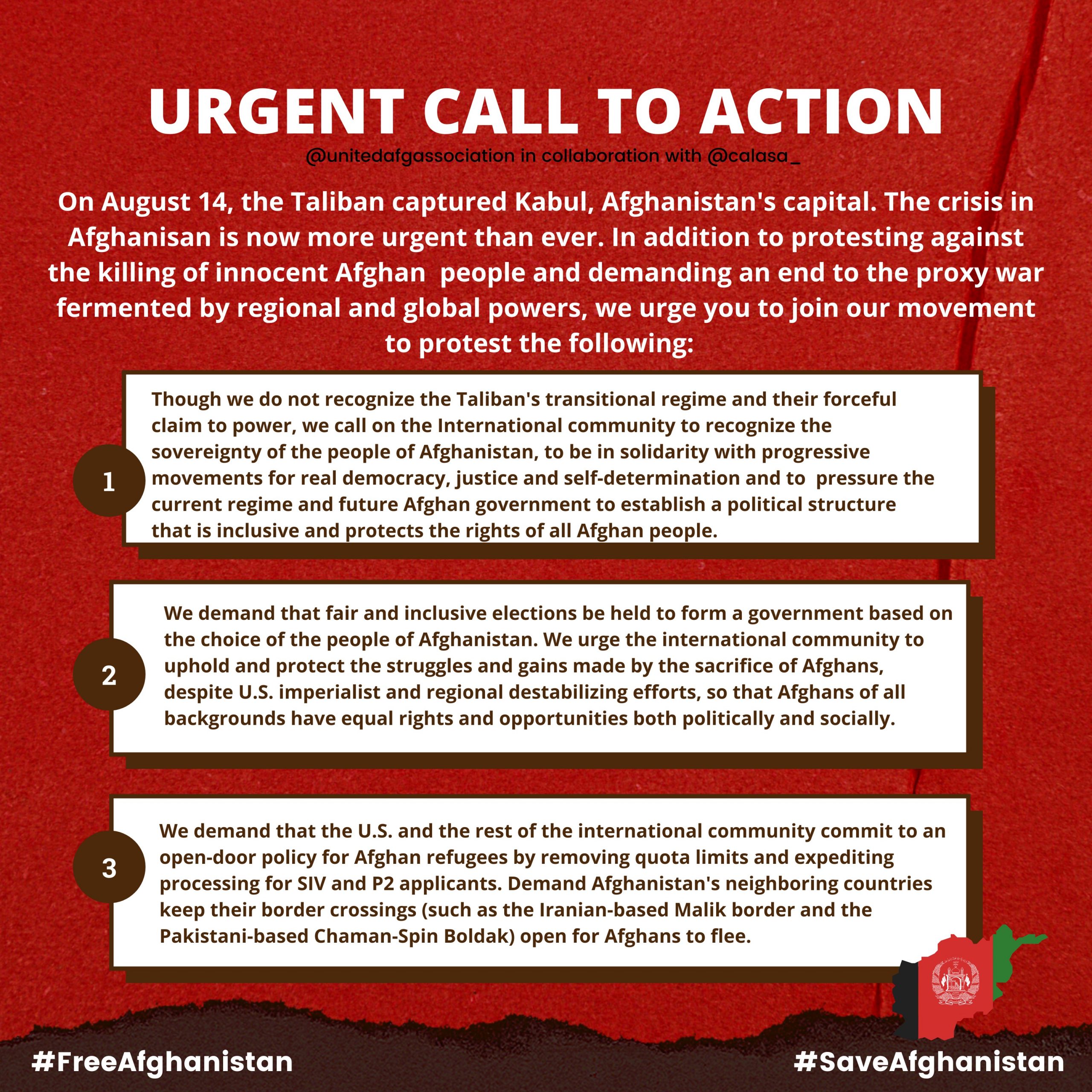
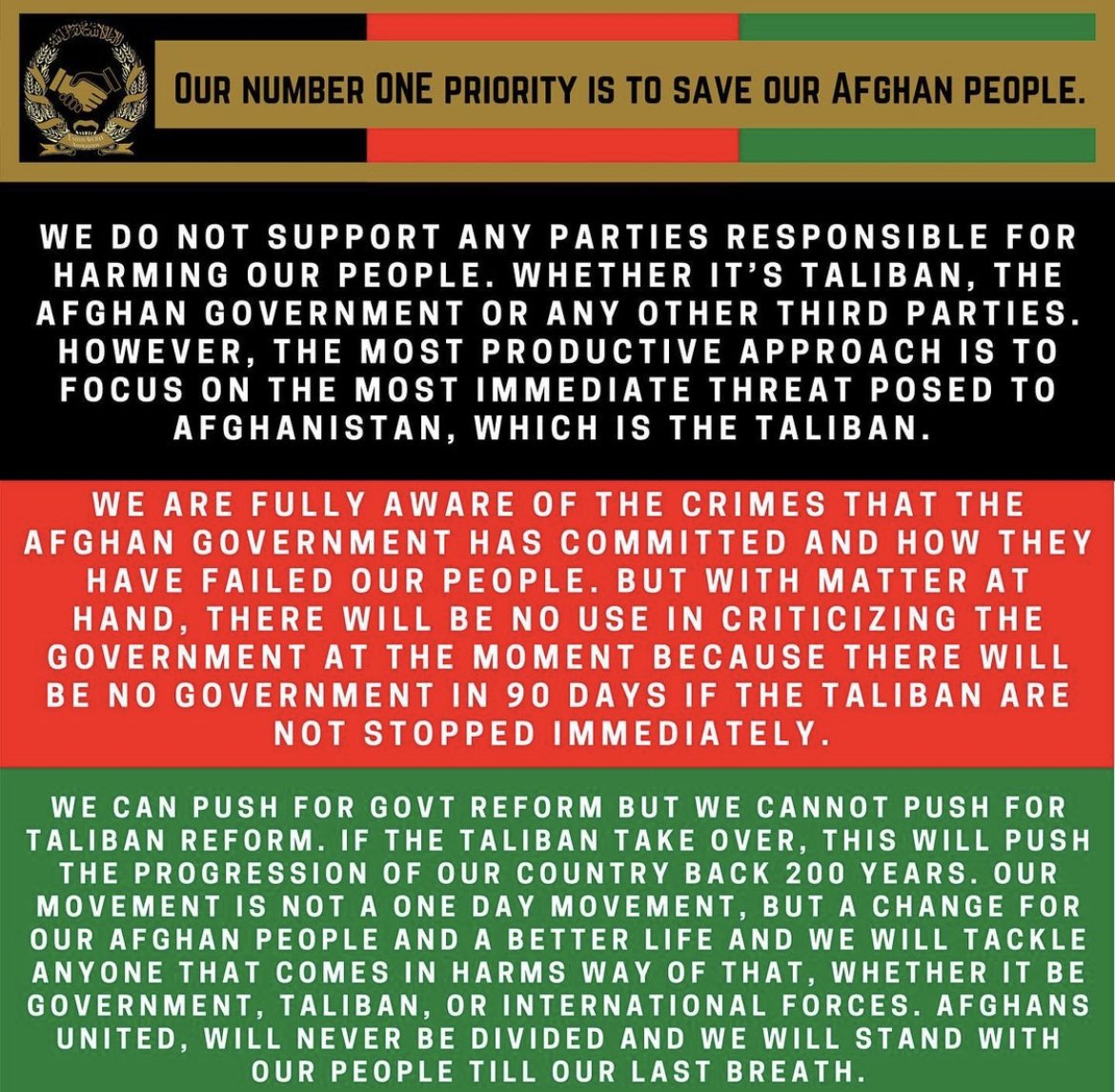



























Beheshta • Sep 22, 2021 at 6:40 am
This was such a beautiful article, thank you to our brother Farhad for the coverage and advocacy!! Would love to read more from him!!
Destiny • Sep 19, 2021 at 9:06 pm
This article made me cry because it’s so beautiful. I’m proud of you, please continue to do what you do.